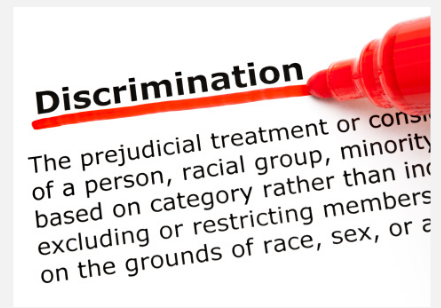Important strides have been made in the United States and elsewhere to degrade the stigma around mental health conditions. Celebrities, politicians, and even the British royal family have championed mental health causes and reinforced the importance of seeking support. However, as long as mental illness is not sufficiently protected and individuals continue to be discriminated against for mental illness, the stigma will not go away.
From the Justice Department to the Department of Education to the Department of Commerce, contempt for enforcement of civil rights laws is an organizing principle of this administration. In some attempts to minimize the prospective damage, the US Commission on Civil Rights, a bipartisan agency, will launch a two-year investigation into the effects this administration’s policy and budget has on civil right enforcement. Many individuals vulnerable to discrimination, however, will face a significant decrease in the basic protections offered. For at least four years, this administration is likely to do only the bare minimum required by law to enforce civil rights and anti-discrimination.
This begs the question, after the passage of important mental health legislation, the 21st Century Cures Act, the first major legislation of its type in 20 years, is it also time for Congress to pass an anti-discrimination act for mental health?
Nearly 44 million Americans, or one in five people, experience a mental illness—such as post-traumatic stress disorder, obsessive compulsive disorder, schizophrenia, depression, and bipolar disorder—each year. As Vice points out, this means that many individuals who lack a basic supportive environment at work are driven to unstable freelance or contract work rather than finding an employer who would be receptive. For some university students the consequences of reporting mental illness have been nothing short of catastrophic, with suicidal students being threatened with disciplinary action for discussing their thoughts.
The Americans with Disabilities Act (ADA) prohibits discrimination against individuals with disabilities, and includes mental illness, in public spaces. It is up to the individual, however, to disclose the mental illness, and without an indication that a workplace will accommodate that condition, disclosure can be difficult, and fear of backlash or years of litigation can have a chilling effect on disclosure.
No new legislation is in the works to strengthen the Americans with Disabilities Act’s protections for people with serious mental illnesses, but it may be time for Congress, or individual states, to consider it. Meanwhile, the full and rapid implementation of the ADA is absolutely necessary and the Trump administration should not waiver on enforcement of the act. iustitia is concerned that the deterioration of civil rights enforcement under this administration will affect people of color and vulnerable communities on multiple layers—in criminal justice, education, employment, and public accommodations. Absent stronger legislation, it is up to us and our communities to degrade the stigma around mental illness and ensure individuals are aware of their rights with regard to mental illness and anti-discrimination laws.
The importance of landmark anti-discrimination legislation becomes clearer every day. Congress should be furious that cost-cutting in the administration is coming at the expense of the enforcement of laws meant to protect disadvantaged individuals. Governmental bad faith on civil rights should not roll back the important gains that have been made in the 27 years since the passage of the ADA.
Also posted on medium.
